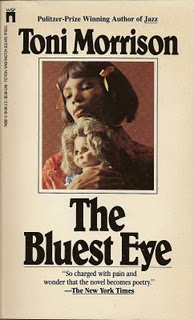

These two points intersect in Smith’s claim: To an African-American point of view previously unrepresented in American Prose aesthetics … the true achievement of her fiction has been to give voice Undoubtedly serve as testaments to “her complex understanding of modernist Similarly, Timothy Parrish asserts that though Morrison’s novels Writing is famously steeped in the nuances of African-American language, music,Įveryday life, and cultural history” (270).

“universal” nature of Morrison’s work, “Morrison’s Themes to a milieu that has been perhaps until now underrepresented. Set of precursors and responds to them, in part, by adapting and applying universal As with any novelist or artist, Morrison inherits from a Nor does it lessen Morrison’s status as an accomplished Morrison’s contributions to American and African American literature despiteĬritics’ fears. Her novels and works of European and/or world literature does not diminish The inclusion of Morrison into a type of conversation between The Bluest Eye channels universal themesĪnd in so doing joins a rich literary tradition (broadly speaking, that of Europeīut also of world literature) which predates (and informs) American and AfricanĪmerican literature.

Truly conform to that of his innermost heart” ( Mishima 387). Unquestionably be wonderful if a man could really make the substance of the world Love, an unfulfilled ideal, prompting a grieving friend to lament, “it would Reminds us of Cervantes’s Don Quixote, Flaubert’s Madame Bovary, andĮven Yukio Mishima’s Kiyoaki Matsugae, who dies in pursuit of an unrequited The unbridgeable chasm between how she wishes to see the world and how she finds it Protagonist, Pecola Breedlove, desperately wishes to attain blue eyes despite (andĪrguably because of) “the unyielding earth” of her status as a black In a fashion that recalls Robert Musil’s juxtaposed discursive modes in The Man without Qualities, Morrison attempts to alleviate the aforementioned conundrum (her own potential for “disinterested violence” in the writing of her novel) by establishing a pair of paradigmatic shifts in the novel’s narrative structure and its ethical/moral aims.ĭespite its status as a debut novel, Toni Morrison’s The BluestĬomplicated, and ambitious in its scope and implications. However, in order for Morrison to critique purification as afflicted on characters, such as the protagonist, Pecola Breedlove, Morrison must engage in a type of scientific inquiry which necessitates the enactment of purification, echoing Émile Zola’s notion of the “experimental novel.” In Morrison’s “scientific inquiry,” however, there arises a paradox: she must enact and reify that which she also critiques. I then assert that the notion of the “narrative project” (coined by Morrison) provides the proper medium by which a critique of purification may be made. This practice allows for the “disinterested violence” to be inflicted on all races seem more permissible. Rather, modernist purification and mediation shed light on the underlying mechanisms by which characters in the text (blacks and whites) are reduced into ideological abstractions devoid of subjective experiences and worth. This essay complicates earlier studies which simplify The Bluest Eye as a text solely concerned with racism inflicted on African Americans by whites. In “Toni Morrison’s Experimental Novel, The Bluest Eye: Tempering ‘Disinterested Violence’ through the ‘Narrative Project,’” I claim that Morrison critiques the intellectual practice known as modernist purification.


 0 kommentar(er)
0 kommentar(er)
